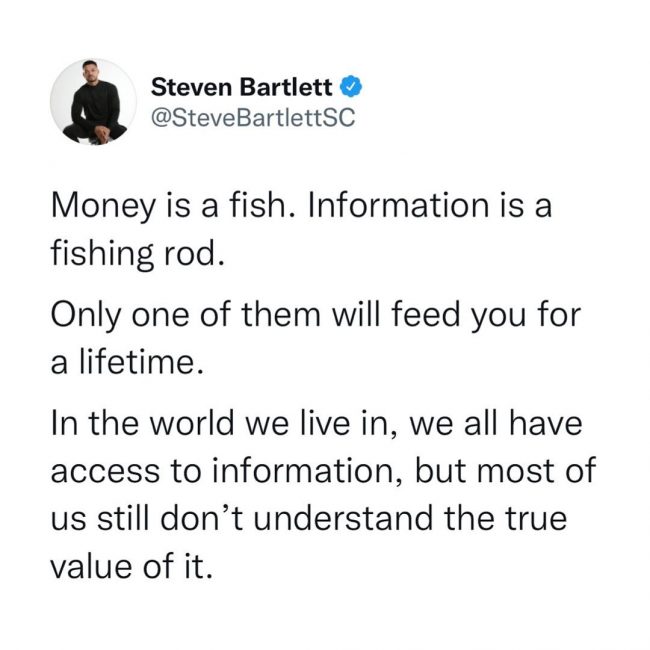

Entrepreneurialism: Does the Reality Live up to Expectations?
The idea of being your own boss and starting your own business can often seem rather glamourous, but is that always the case? Though the pandemic saw a boom in businesses setting up, insolvencies are now more than doubling, suggesting that running a business isn’t quite what people expect.
Running a business requires the owner to wear a lot of different hats. They’re responsible for everything, from finance, sales, and marketing, to hiring and retaining talent. And they do all this while delivering the products and services promised to customers. While entrepreneurs may have skills in many areas, the reality of doing everything yourself can be more difficult than you might expect.
We found out more about what their struggles are, the mental impact of being an entrepreneur, and whether they would do it all again knowing the realities.
What are people’s expectations when starting a business?
From a desire to improve work-life balance, to acting out of necessity following redundancy, our research into entrepreneurial mental health revealed a variety of reasons for starting a business. But does anyone ever really know what they’re letting themselves in for?
Previous research indicates many entrepreneurs take the plunge into running their own business despite relatively low levels of business knowledge. The average score is just five out of ten.
This was especially the case for start-ups launching during the pandemic, when 17% of owners rated their business knowledge as zero, one or two out of 10. Just 5% rated it nine or 10, versus 14% and 9% respectively the previous year.
With a low level of business experience, it is perhaps inevitable that the reality of owning a business matches the expectations of just under a third (32%) of entrepreneurs.
Is the reality of running a business better or worse than expected?
The responses highlight a tendency to perceive entrepreneurialism as easier than it really is. Over half (52%) of respondents agreed the reality of being a small business owner was more challenging than expected. Around a fifth found it more difficult (18%) or stressful (17%) than anticipated.
New entrepreneurs are forced to develop and use skills outside of their existing abilities, and their personal life and wellbeing can often suffer at the mercy of how well they manage this. This is bound to add an extra layer of challenge and stress to everyday life.
“I spent an ungodly number of hours on YouTube trying to decipher what a dividend was, and at the risk of sounding completely stupid, I still don’t fully understand it all.”
Although many expectations have been unpleasantly disproved, a smaller minority have been pleasantly surprised. 16% found entrepreneurialism less of a challenge than they thought they would, and 8% are less stressed than expected.
There is no one-size-fits-all guidebook to being an entrepreneur. The expectations and realities will change depending on sector, the type of business, and the business owner’s previous experience. When we drill further into the specifics that make the reality of running a business, it becomes clear that the challenges often catch business owners by surprise.
“Seldom will you be told the best tips within business for free. You have to put your own time, effort and expense into trial and error, or pay for the advice.”
The practicalities of running a business
When asked to select the biggest challenge entrepreneurs anticipated when starting a business, three quarters (75%) said they were concerned about generating sales. In reality, 42% fewer respondents struggled with this, and said that to their surprise, clients and business have come fairly easily to them.
“I thought that it would be really hard to start generating the first sales and that it would have been easier to scale up once the concept had made its proof. The contrary happened. The first customers came to me quite naturally even though I had no network.”
How hard is it to recruit and manage staff?
Recruitment was found to be an unexpectedly difficult task for new business owners, with 60% more respondents citing it as a challenge in reality.
Finding and hiring the right people with the necessary skills can make recruitment a complicated and stressful process, but one which is crucial for supporting an expanding business.
The process of actually employing staff, and the requirements that come with it, can be confusing. Managing and leading staff as the business grows can also be challenging, with 21% finding it more of a struggle than expected.
“I’ve realised I need to work on myself a lot to learn how to truly manage others to make sure they achieve their own dreams through my company.”
The reality of dealing with finances
Finances can be overwhelming for entrepreneurs starting out, especially at the outset when there tends to be large amounts of outgoing costs and far fewer incoming. Small business owners don’t necessarily see themselves as financially or numerically savvy, with more than two thirds (67%) saying they were expecting it to be a key challenge.
Although this has arisen as a real challenge for 25% fewer entrepreneurs than those who expected it, half still found it difficult. This may be due to learning bookkeeping processes or the uncertainty of self-employed income. But as finance is central to all businesses, it appears to be an area that entrepreneurs generally need more support in.
“The more I think about it, the crazier it is that I was never taught basic accounting or money management skills in primary or secondary school growing up.”
“Bookkeeping takes a lot of time and organising receipts is so time-consuming to do manually. I thought it would be quick, but it piles up fast.”
“I was pleasantly surprised by how quickly I learned new skills in accounting/finance, law and other related administration fields.”
Work-life balance – do the self-employed really have it better?
Previous research indicated that work-life balance motivated 43% of entrepreneurs to start their own business, and this survey tells a similar story with 42% saying they expected a better work-life balance.
However, this currently seems to be a common myth, and a better work-life balance became reality for 5% fewer entrepreneurs. In fact, a worse balance is the current reality for a fifth of respondents. Perhaps this can be somewhat attributed to the difficult economic climate and the challenges it brings.
Although small business owners may struggle to find the balance between their business and their personal life, half (50%) said that they are now able to work more flexibly. This flexibility can be a double-edged sword.
While business owners are able to fit their schedule around their life, time management is a much bigger challenge than anticipated. Many find themselves working earlier in the morning and later into the night.
The lines between work and life can blur for business owners, making it difficult to switch off, especially if your business premises is also your home. It can lead to longer working hours, less free time, and a worse work-life balance.
“I dreamed of giving myself Fridays off but whenever I schedule a day off, I inevitably fill it myself with work things!”
With work-life balance being less than expected, it perhaps isn’t surprising that business owners also typically work more hours per day than they did in their previous employment. In both cases, eight-hour workdays are most common. But, while this makes up almost seven in 10 (69%) in traditional employment, just a third (33%) of entrepreneurs have stuck to the standard workday.
Mental health and wellbeing
The Accountancy Partnership’s SME Owner Mental Health Report revealed that a fifth of entrepreneurs started businesses for mental health reasons. In this recent survey, all but two of the respondents experienced some kind of mental challenge since becoming a business owner.
The most commonly reported issues include stress, financial security worries, not having enough hours in a week, and high targets or expectations.

Despite these challenges, there were also some very positive statements from the entrepreneurs surveyed regarding their mental health and wellbeing since becoming a business owner.
Self-employment and being the one to make key business decisions can be a catalyst for personal development and growing confidence. Some people even found this helped them make positive changes in their personal lives.
“I really grew as a person and became more resilient and calmer and it reflects in other areas of my life.”
“The strangest thing I experienced was recognising my own worth and the value of my life experience.”
“I didn’t realise how much of a confidence boost it would give me. I get incredible feedback about my work after years of being told only negative things from employers.”
Get rich quick scheme? The financial realities of entrepreneurship
Entrepreneurship can be incredibly lucrative, as demonstrated by figures such as Elon Musk, Richard Branson, Jeff Bezos, and Ben Francis who made their fortunes by setting up their own businesses. But these sort of examples can give a distorted view of the reality of entrepreneurship. Most will not have yachts stationed in the various glitzy ports of the world, and even for those who do, it most certainly won’t happen quickly.
“I wanted to match what I was earning through employment but with half the hours worked.”
More than a third (35%) of start-up owners expect to make more money than in their previous role. A quarter (24%) were aiming to supplement their existing earnings through a side-hustle or second income.
Just 6% thought they would have instant success or get rich quick, and only one respondent thought they would earn less than they did working for someone else. In general, the starting financial expectations of entrepreneurs surveyed were very realistic.
“I know it will be a while before I see the business grow to what I want.”
“I expected to build slowly and initially earn slightly less than previously, which is what happened.”
Waiting to break even
The expected period for a start-up to break even and start turning a profit is three years. In reality this depends on the nature of the business, economic climate, sector, and the capital and investment necessary to create the product or service.
In the beginning, there tends to be more outgoings than income. The ‘valley of death’ is a well-known business concept referring to the start-up phase where a business is operating without any revenue, and relying on capital.
However, of the entrepreneurs surveyed, three in 10 (29%) became profitable more quickly than they expected, and a fifth (22%) expected to make less money than they now do. Unmet expectations appear to fall mainly with the consistency of income streams.
“The most unexpected business reality was how easy it was to set up and start running my own business, but also earn more money in my first year than I have ever done in my career to date.”
“I expected to have more consistent income, but it goes up and down.”
Why do entrepreneurial expectations differ from reality?
Over recent years, a ‘hustle’ culture has arisen, perpetuated by social media and entrepreneurs-come-influencers. It could be why there are disparities between what business owners imagine will happen, and how their business journey actually turns out. The pandemic further exacerbated the issue, when people took to social media platforms such as LinkedIn to share how they turned redundancy or furlough into a business opportunity.

Influential individuals, such as Steven Bartlett, portray an image of business ownership that may not match reality, leading almost a quarter of entrepreneurs (23%) to say that they found social media has glamourised the start-up lifestyle.
However, this is not to say that social media is problematic for business owners. It is also cited as a place of motivation for SME owners (17%), and somewhere they can share their experiences with a like-minded network (11%). This sense of community among entrepreneurs is crucial for many, providing support and comfort in the knowledge that they’re not alone with the challenges they face.
Unexpected interruptions
Our research indicates 97% of entrepreneurs have faced unexpected interruptions to the running of their businesses. These range from day-to-day distractions such as parcel deliveries, to longer-term hold-ups such as the pandemic and illness.
When business owners face these disruptions, and when they have been unable to prepare for them, their preconceptions become compromised.
The most commonly experienced interruption is a loss of internet connectivity or WiFi (42%), something that many can relate to. When seemingly small annoyances such as this or frequent cold calls continue to happen, frustration can build and impact the overall experience of running a business.
Is the reality of running a business worth it?
Resoundingly, those surveyed said that entrepreneurialism was the right path for them, despite it not always meeting the expectations they had when setting out.
Just 2% said that they would not start a business due to the disparity between how they thought the experience would be, and how it actually is.
Rising to challenges, adapting, and overcoming hurdles is essential to business success. Those who can do that successfully are better able to navigate unexpected setbacks and disruptions.
“Business is not for everyone, only people that like to work hard and have passion for something can become businesspeople.”
When asked if they would recommend starting a business to others, two fifths (41%) said that they would, but they would emphasise the challenges to help others manage unrealistic expectations.
While there are many quirks and lessons to be learned as a new entrepreneur, in most cases it seems these are not enough to put people off the idea of starting. Conducting this type of research into the SME community allows us to tailor our support to business-owners, and ensure they have the greatest chance of success.
Learn more about our online accounting services. Call 020 3355 4047, or get an instant online quote.
Want to learn more?
Subscribe to our newsletter to get accounting tips like this right to your inbox

Read more posts...

What’s the Most Tax Efficient Director’s Salary?
23rd January 2026As a director you’re legally separate from your limited company even if you’re also the owner. This means you’re not allowed to…
Read More
Employer’s Guide to Statutory Sick Pay (SSP)
21st January 2026As an employer it’s your duty to make sure eligible employees receive Statutory Sick Pay (SSP) if they are unwell and need…
Read More
UK Tax Rates, Thresholds and Allowances for the Self-Employed
15th January 2026Read our guide to UK tax rates and thresholds for sole traders, limited companies, partners and partnerships, employers, and other businesses. Paying…
Read MoreConfirm Transactions
The number of monthly transactions you have entered based on your turnover seem high. A transaction is one bookkeeping entry such as a sale, purchase, payment or receipt. Are you sure this is correct?
Please contact our sales team if you’re unsure
VAT Returns
It is unlikely you will need this service, unless you are voluntarily registered for VAT.
Are you sure this is correct?
Call us on 020 3355 4047 if you’re not sure.
Bookkeeping
You will receive our bookkeeping software Pandle for free, as part of your package.
You can use this to complete your own bookkeeping, or we can provide a quote to complete your bookkeeping for you.
Please select and option below:
Call us on 020 3355 4047 if you’re not sure.

